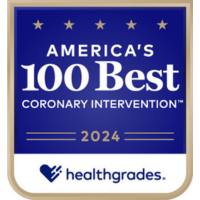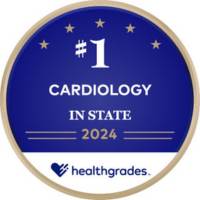Smart Lifestyle Choices Can Reduce Risk for High Blood Pressure
Jun 3, 2024May Is High Blood Pressure Education Month
WORCESTER, Mass. – You may have inherited your blue eyes from your mother and brown hair from your father. And everyone says you look just like one of your grandparents. But you could have inherited more than your looks from the members of your family tree. You may also be carrying on a family tradition of high blood pressure.
Blood pressure measures the force of blood pushing against the walls of the arteries (systolic or top number) and when the heart rests between beats (diastolic or bottom number). A reading of 120/80 mmHg is normal; a measurement consistently 130/80 mmHg or higher is considered high blood pressure.
Stunning as it may sound, nearly half of Americans ages 20 years and up – or more than 122 million people – have high blood pressure, according to a 2023 report from the American Heart Association. On top of that, the World Health Organization (WHO) estimates that about 46% of adults with high blood pressure don't know they have it. If you have a close family member with the condition, then you run a higher risk of developing high blood pressure yourself. Other uncontrollable risk factors for the condition include race and increasing age. African Americans are more likely to have high blood pressure, develop it sooner, and be affected more severely than Caucasians. The condition also increases with age, occurring more often in people over the age of 35.
“Some risk factors for developing the condition cannot be controlled, including heredity, race and age,” says Mark O’Connor, MD, cardiologist at Saint Vincent Hospital. “But you can take steps to help delay or prevent the onset of high blood pressure by making healthy lifestyle choices.” Dr. O’Connor offers the following tips to help control high blood pressure:
- Limit your salt intake. In general, daily salt intake for adults should not exceed 2,300 mg of sodium per day
- Eat heart healthy. Focus on an eating plan that includes fruits, vegetables and whole grains, and incorporate low-fat or fat-free dairy products, as well as fish, poultry and nuts.
- Be physically active. Approximately 30 minutes of moderate-intensity activity is recommended daily or on most days of the week.
- Maintain a healthy weight. Losing weight can help reduce the strain on your heart if you are overweight or obese.
- Take medications as prescribed. Your doctor may prescribe medications as part of your treatment plan if lifestyle changes alone do not control your high blood pressure.
- Limit alcoholic beverages. More than two drinks per day for men and one a day for women could cause high blood pressure.
- Stop smoking. Smoking not only increases your risk of developing high blood pressure, it also raises the chances of stroke, heart disease, several different kinds of cancer, and peripheral arterial disease.
- High blood pressure, or hypertension, is a silent killer that could require lifelong treatment once it is diagnosed.
“By understanding your risk factors for high blood pressure you can reduce your chance of developing the condition,” adds Dr. O’Connor. “Making even small changes to your lifestyle can potentially avoid life-threatening complications such as stroke, heart failure, heart attack and kidney failure.”
To learn six ways to reduce high blood pressure and begin a journey to a better you visit here.



 This distinction places us in the top 5% of hospitals nationwide for coronary intervention.
This distinction places us in the top 5% of hospitals nationwide for coronary intervention.